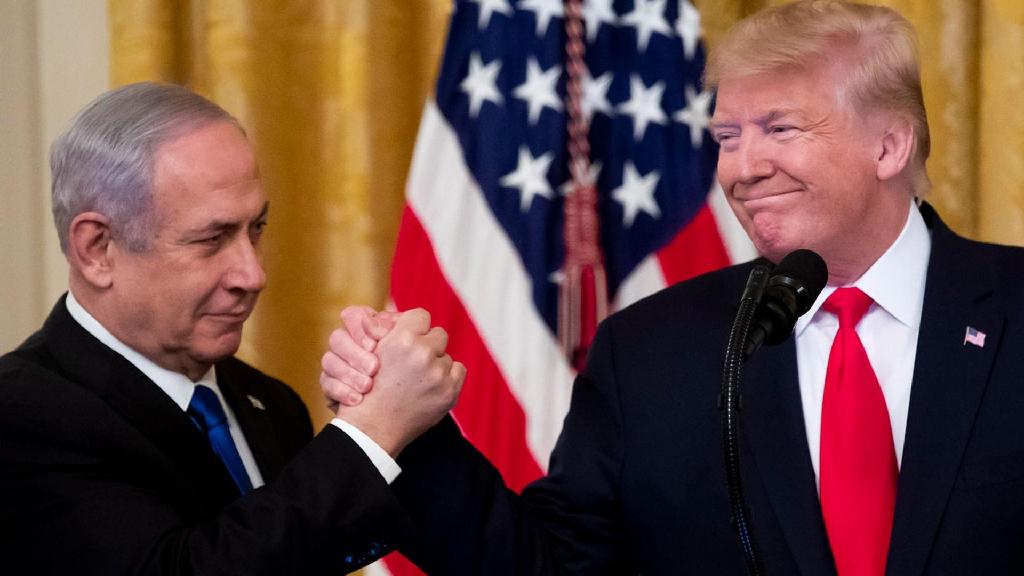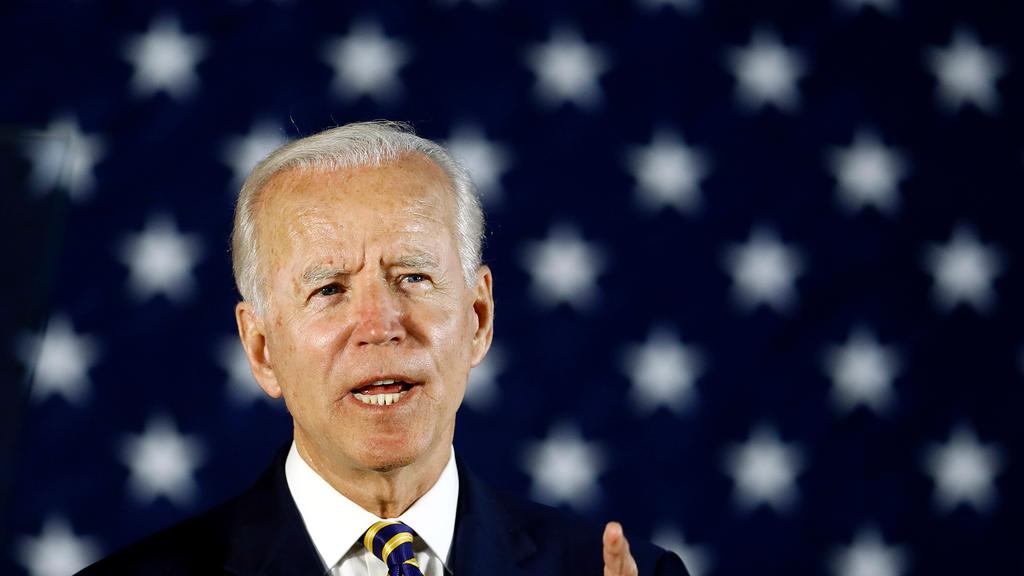Getting your Trinity Audio player ready...
Israel is dangerously underestimating the severe implications annexation of West Bank territories will have on its image in the U.S. – ideologically, morally, diplomatically, and economically.
The most well-known lines in the American Declaration of Independence are: "We hold these truths to be self-evident, that all men (and in the beginning, it was only men) are created equal, that they are endowed by their Creator with certain unalienable Rights… That to secure these rights, Governments are instituted among Men, deriving their just powers from the consent of the governed."
4 View gallery


U.S. President Donald Trump and Prime Minister Netanyahu during the reveal of the Middle East peace proposal
(Photo: EPA)
This declaration of course was hypocritical – its main author, Thomas Jefferson, and many of its signatories were slave owners who did not rush to free them in the name of liberty or acknowledge the rights of women to vote.
But for Americans on both sides of the political aisle, the slow battle to fulfill that vision is an essential part of their self-definition as Americans.
Even the current wave of protests that hit American cities gains sizeable popularity, also among white people, out of this foundation and resistance to that hypocrisy.
And sure, many Americans could enthusiastically support annexation, but only if its the annexation of the entire West Bank and all its inhabitants, both Arabs and Jews, become equal citizens.
Even now, support among Americans for a one-state solution – the doomsday scenario for the Zionist movement and the residents of that state – is nearly the same as support for a two-state solution.
Most Americans do not have any stock in either Palestinian nationalism or statehood. They are invested in the idea that all people should have civil rights in the nation they live in, no matter what.
For Americans, citizenship is a geographical matter, not a national one. The 13 Colonies declared their independence from Great Britain not for the rights of the American people for a state – given the fact "American" as a term did not exist yet – but for the right of the British colonists living in America to rule their own fate.
They demanded from King George III equal representation, the right to vote, and influence in parliament; and if not, independence.
This is an essential difference between the way Americans and Israelis view this issue.
For most Americans, excluding the conservative evangelical minority, there is no third option.
Demilitarized state, yes, but no eternal limited autonomy or a pseudo-state. If a two-state solution could not be implemented, then the polls make the solution clear: The majority of Americans will prefer a single democracy, a multinational state with 'one man, one vote' rule.
For them, an option of a single state where one group is excluded from full civil rights sounds like something that rhymes with "heid".
4 View gallery


Palestinian workers waiting to cross an IDF crossing near the village of Beit Furik
(Photo: Reuters)
For years, Israel explained to the world that it strives to divide the land, but it cannot right now, and for good reasons.
Annexation is seen as a clear announcement by Israel that the two-state solution saga is done, and the most that can be discussed is a mishmash of local townships connected by roads, à la the Trump peace plan.
The day after the Trump era, which could already arrive on January 20, the results of annexation could be severe for the United States.
Joe Biden, if elected president, will not all of a sudden turn into an Israel hater and will not revise the mutual assistance pact and drop sanctions instead.
But Israel will want a new aid agreement and help with various issues and matters in the future.
The Jewish State would also want to uphold the idea that the way into Washington's heart goes through Jerusalem.
Moreover, the U.S.'s support for Israel doesn't only conclude in favors, but also in preventing damages - from UN Security Council votes to lobbying to other countries on its behalf.
But the U.S. might find itself abstaining during a UN vote, as it has already done in the past; and it seems that Biden's associates, whose lobbying is necessary for Israel, view annexation as a slap in the face of all they believe in.
And of course, the immediate danger to Israel's pockets. European nations could land sanctions on what they see as a blatant violation of international law.
Traditionally, the U.S. would have stood up for Israel, but Trump's America has lost its influence in Europe, and Biden's administration would not even try.
Europe becoming the bad cop in this scenario might be beneficial for Biden's image as the good cop. European sanctions with a tinge of American indifference are a tangible threat for Israel.
The 77-year-old Biden has already hinted that he will be satisfied with one term if elected.
The next Democrat presidents will listen to their party and the American people's will.
The large majority of them are still pro-Israel, sometimes enthusiastically, and Israel can still promise itself their support for the future.
But when an Israeli government is creating a contradiction between their love for it and their American identity, it is playing with fire in the heart of the country's national security.
Natan Sachs is the director of the Center for Middle East Policy at the Brookings Institue.



